A group of elderly South Korean women gather every day in wetsuits, carrying hooks to harvest food from the sea, on Jeju Island as they have done for hundreds of years. They’re known as haenyeo divers comprised mainly of women in their 60s 70s and 80s. They spend the day in fellowship and work, diving down to the ocean floor without air supplies to catch all manner of seafood. It’s lucrative and physically demanding and they love it, a skill passed down and taught from generation to generation, from grandmother to mother to daughter. They are also canaries in the mine. They spend their days onshore and underwater and see change close up, witnessing increasing plastic pollution, global warming and climate change. When Japan proposed to release its huge store of radioactive water from the Fukushima nuclear disaster into the ocean, the haenyeo leapt into action. They protested in the streets, in the media and recently travelled to Geneva to speak before the Human Rights Council on the dangers of such a release. Nobel Peace Prize laureate Malala Yousafzai produced an exceptional documentary on the “haenyeo”, The Last of the Sea Women, directed by Sue Kim. What She Said’ Anne Brodie spoke with Kim.
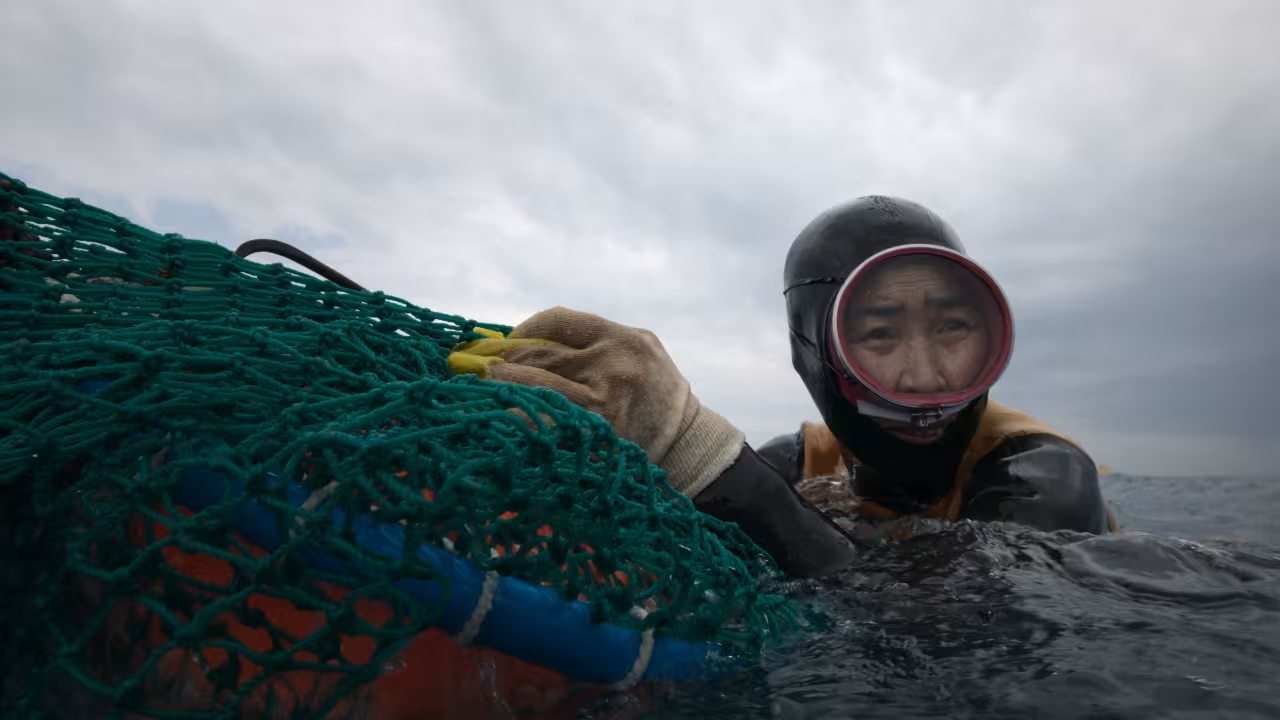
Anne Brodie – Kim, your documentary is urgently important. Not only does it highlight these women and what we think is a vanishing culture but it also highlights the problems that they see every day in terms of ocean cleanliness and global warming. And then Japan’s proposal to release tonnes of radioactive water into the ocean. You hit the nail on the head with this one. Did you expect to do tese issues or did they present themselves while you were making the film?
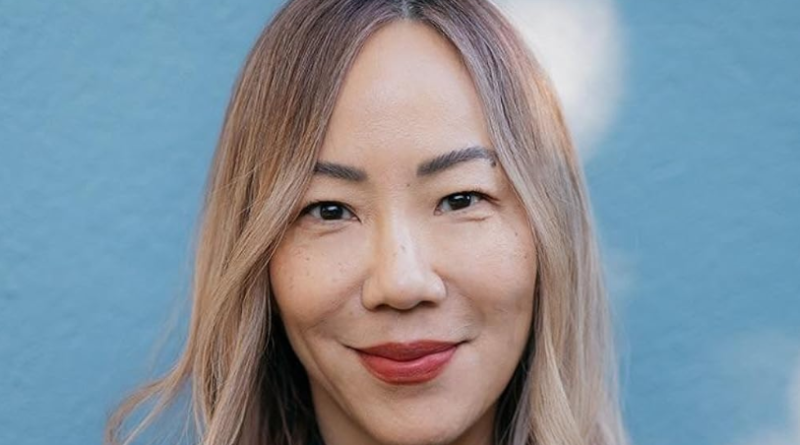
Sue Kim – You know, some of it. I didn’t know about it in advance and some of it was a surprise and a discovery while filming. So, um, you know, I knew quite a bit about the haenyeo diver culture in and of itself because I had, um, I’ve kind of been fascinated with them since I was a very young girl. And so I spent my whole life kind of fascinated with them reading about them. And then going back to Jeju to find them and speak with them. So, when we started filming, I knew that they were a culture that was on the verge of extinction. And before filming, I had thought that the predominant reason that this culture might vanish was just due to a lack of interest from younger women. I thought, that that was the sort of the biggest threat to their existence. But when we started filming, what I found out through the haenyeo divers themselves was that they actually see the largest threat to their existence, being the decline of the marine life in the ocean. And so they were that really highlighted that negative impact. Oceanic pollution has been as well as climate change and global warming, how it’s raised the ocean’s temperature by a few degrees, but even just, that few degrees increase has been enough to completely disrupt the balance of the ecosystem. They are the ones that are in the ocean every day year, after year, for decades, so they’re the best.
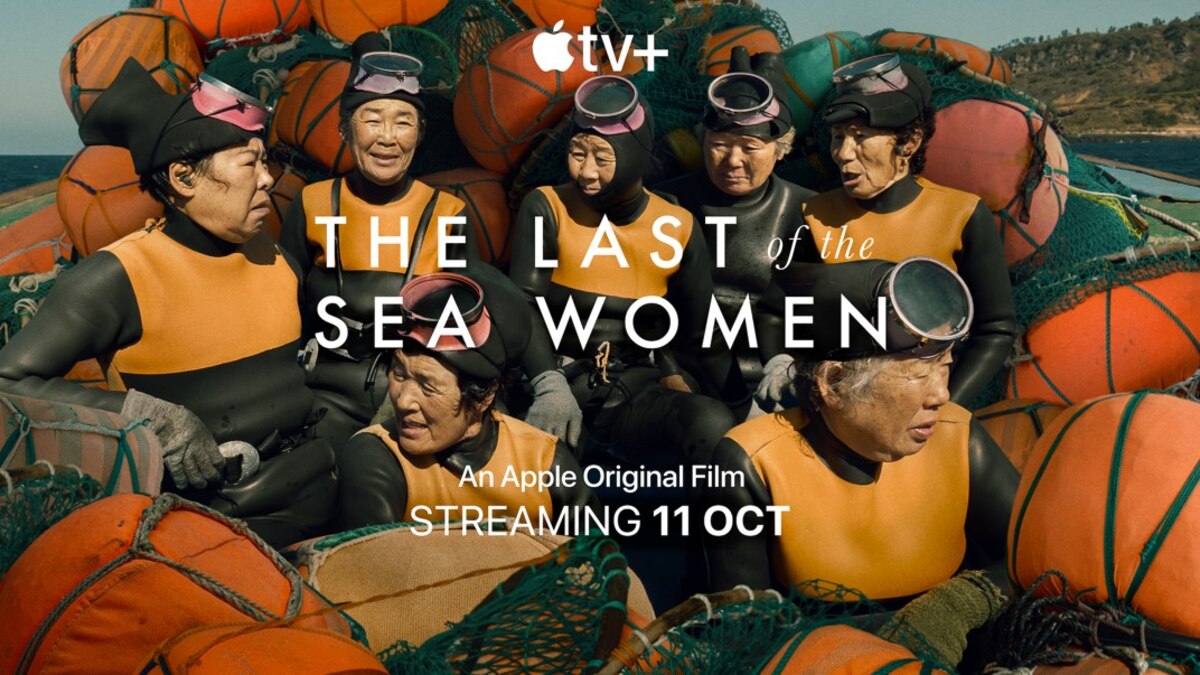
They became representatives on the ocean’s behalf to speak to what is happening with the decline of the ocean. So, so that was a discovery for me. That it was more about the environmental hazards and the environmental destruction of the ocean that was really the greatest threat. But we did know um, about the Fukushima Water release that it was sort of impending um because it was it was announced by the Japanese government in the spring of 2021. But what we didn’t know was when they were going to start releasing the water and we also didn’t know how the haenyeo divers were going to react to it.
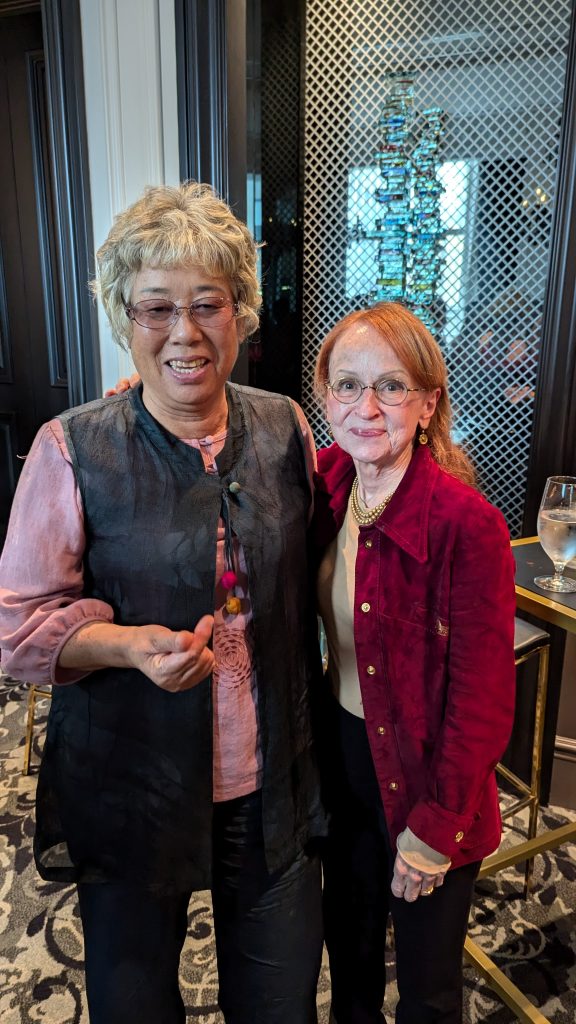

I had the great honour of meeting haenyeo Jin Sook Park and producer/activist Malala Yousafzai . Thank you AppleTV+ Canada.
We knew that, of course, like Japan and South Korea, their neighbors. So, releasing that treated radioactive water into the ocean, it would go directly to South Korea. We knew that it would affect them, and I was so incredibly pleasantly surprised that they became such activists in the wake of that. So it was a lovely surprise and a discovery that gave so much energy and urgency to the film.
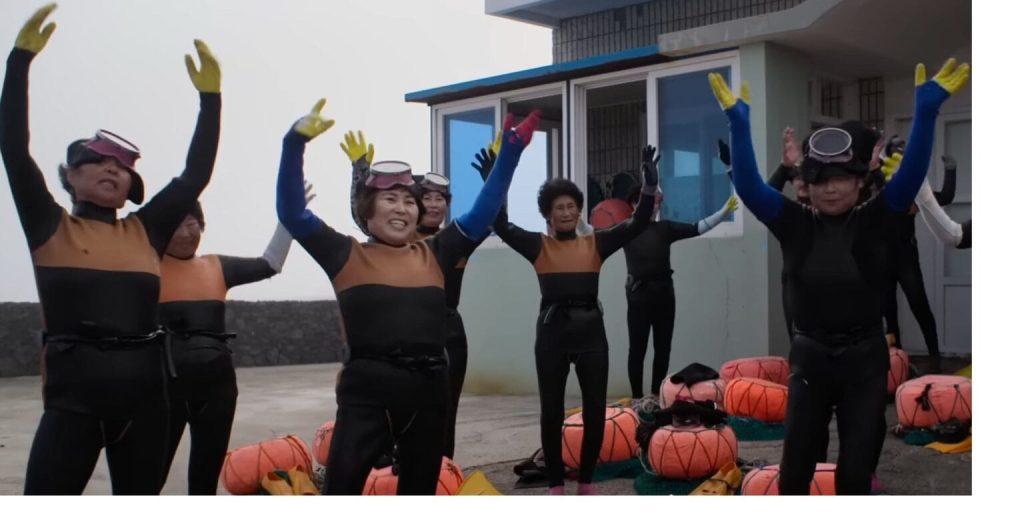
Well yes. Indeed. Oh, they are heroes. The film, in my opinion, should be shown in schools and universities, it should be everywhere and I hope you undertake to make that happen because if it’s crucial. It may even increase the haenyeo divers population over time. We spoke once before and you told me that you looked at them as a girl gang and you wanted to be part of that gang. And now you’ve used your gifts to create something that benefits everybody, for them, on their behalf. So do you think you’ve earned your membership?
I do. Well, I feel like it. That is such an interesting way of looking at it because you’re right when I first saw them as a young girl, I really wanted to be one of them. I didn’t know what they were, what kind of group they were and what they were organised around. But I just remember wanting to be part of the cool girl gang that I thought they were. And I guess during the filming, that was sort of me trying to insert myself into a girl gang. I just came back from Korea, where we were screening at the Pusan International Film Festival where we reunited with a lot of them. They did Q and As with me, and represented the haenyeo divers community and I did get to see them watch the film. They really started to understand that audiences all around the world are going to see their story and be so moved and inspired by them. It was so touching for me to be able to witness them feeling so honoured, and that women and audiences around the world would care about their plight and their lives. So, maybe that has earned me a place as an honorary member in their girl game.
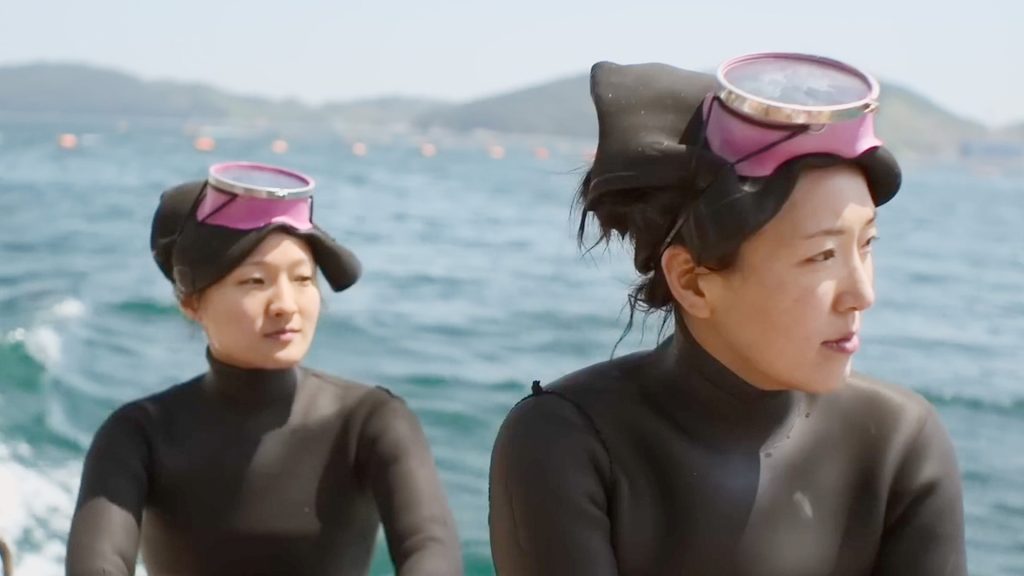
I hope so. A couple of the haenyeos went with you to Geneva, to speak to the UN. To make a statement. Yeah. And then they began a media tour. How effective has it been so far?
Unfortunately, it has not done much in terms of changing the Japanese government’s mind about it. So, our subject Jin Sook Park, spoke very movingly at the UN. And for her, it was very important to be able to speak up on behalf of her fellow haenyeos in an environment where she had a global audience and members of Nations that might be able to do something. But the thing is that the Human Rights Council hears about human rights violations all day every day, but I think that they were very interested to know who she was and what kind of culture she came from. But in terms of moving the needle on changing government policy, I think it’s very rare when something like that actually happens at the Human Rights Council. And so, other than South Korea and I know China is still very concerned about the Fukushima water release. There’s just not a lot of media coverage on it, certainly not in the Western Hemisphere. I feel like very few people even knew it was happening.

The one hope I have is that maybe this film in some small way, could help publicize that this issue is happening even though it’s happening over in the geopolitical region of East Asia. But it’s happening in the ocean which is a global current and that current goes right to the West Coast of the US. It hits California before it hits certain parts of South Korea. I’m hoping that maybe people might actually start the conversation again about how potentially irresponsible reckless and damaging this could be and whether or not this is an action that we should be taking or accepting.
I believe that people will see your film globally and wake up. Another thing in the doc was the divers’ descriptions of why they loved being in the ocean. One woman said, “It’s like being in your mother’s arms”. That’s nature that is the beauty of nature. All of us, the human response to Nature is just unlike a response to anything else. That is so important for us, not to forget nature.
100 percent. And also, it’s very linked to that maternal lineage. These women learn this craft from their grandmothers being passed down to their mothers and then their mothers pass it down to them and then they spend all their day in the ocean. And the way that they take care of the ocean to me feels very nurturing and maternal. So I think they have a spiritual relationship with the ocean that is related, so much to this maternal relationship. This is caretaking.
Yes, caretaking and that’s what you’re doing creating this film. Has the South Korean government ever recognised, or thanked the divers?
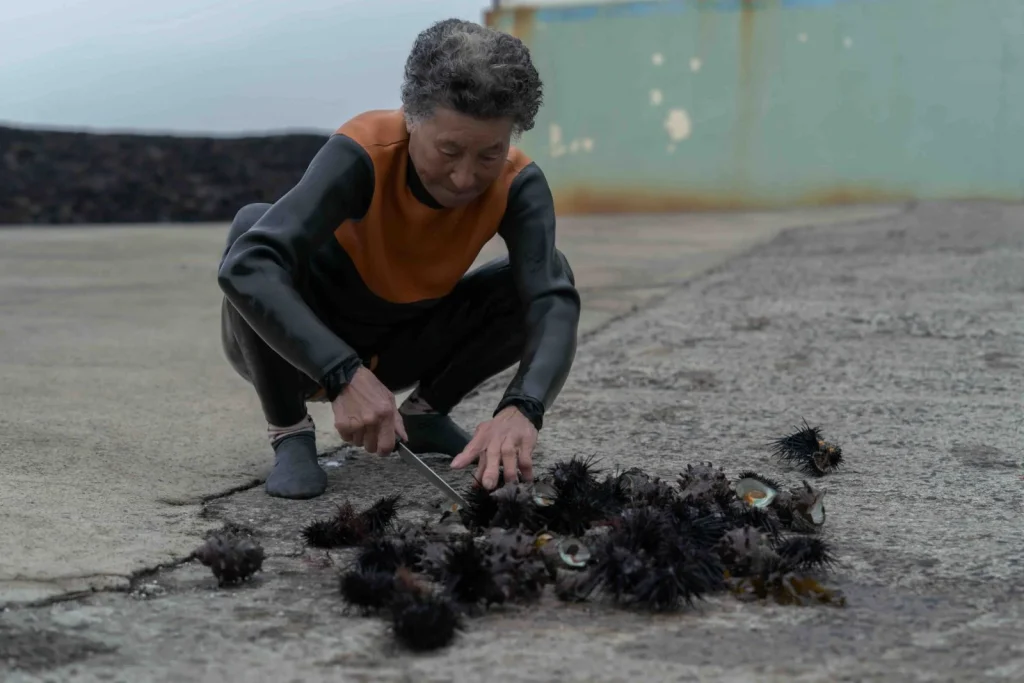
They’re pretty beloved in South Korea, but I don’t know that they’ve ever officially been recognized as National Heritage. They were recognized by UNESCO in 2016 as part of the Cultural Intangible Heritage site. So UNESCO recognised the culture of the haenyeo women and what an impact they’ve made on their communities and on Jeju Island. I don’t know if South Korea has ever formally recognised them but also, as they said in the film, there used to be a little bit of a stigma around the haenyeo culture, more in like the 60s and the 70s and the 80s. But lately, I’ve seen a lot more representation of the culture in Korean media like K-dramas, it seems to be out there a lot. That is good news, too.
I’m just so in love with this film and what you’ve managed to accomplish with it and I hope that this is the beginning of change.
The Last of the Sea Women on AppleTV+ Oct 11.